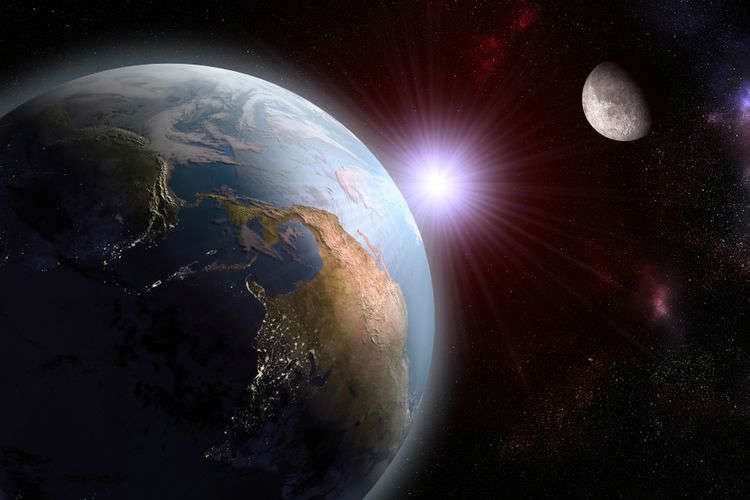
Rotation is the rotation of an object on its axis like a spinning wheel. Thus, the Earth's rotation is the rotation of the Earth around its axis in the Solar System. This movement is called pseudo motion. Through the rotation of the earth, we actually keep changing positions without us knowing it.
The ends of the Earth's axis of rotation are known as the north pole and south pole. Perpendicular to the Earth's axis of rotation, there is an imaginary line known as the equator or equator.
Researcher at the Center for Space Science of the National Institute of Aeronautics and Space (LAPAN), Dr. Rhorom Priyatikanto in science education eight explained, the Earth takes 23 hours 56 minutes and 4.09 seconds to rotate a full 360 degrees.
With this duration, it is generally rounded up to 24 hours like the calculation of hours in everyday time.
"This duration is known as the sidereal period of Earth's rotation," explains Rhorom.
With the Earth's rotation period, humans near the equator, such as Pontianak, will move at a speed of almost 1,700 km per hour. On the other hand, humans in regions far from the equator cannot feel the rotational motion of the Earth because its speed does not change.
However, humans in areas far from the equator can still see the impact of this Earth's rotation. Continuing the issue of areas near or far from the equator above, the first impact relates to areas that are far from the equator or the equator.
Those of you who are in a region far from the equator will be able to see the effects of Earth's rotation such as the daily apparent motion of the Sun and other celestial bodies from east to west which continues to repeat.
It is from the impact of the earth's rotation that humans know the count of time, which we call days. The part of the earth or hemisphere that faces the sun will experience daytime conditions, while the opposite side does not get sunlight and is in night conditions.
This event lasts throughout the day with each part of the earth experiencing day and night for approximately 12 hours alternately.